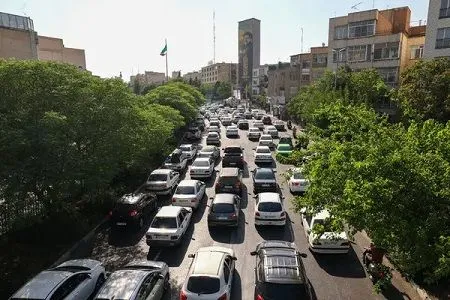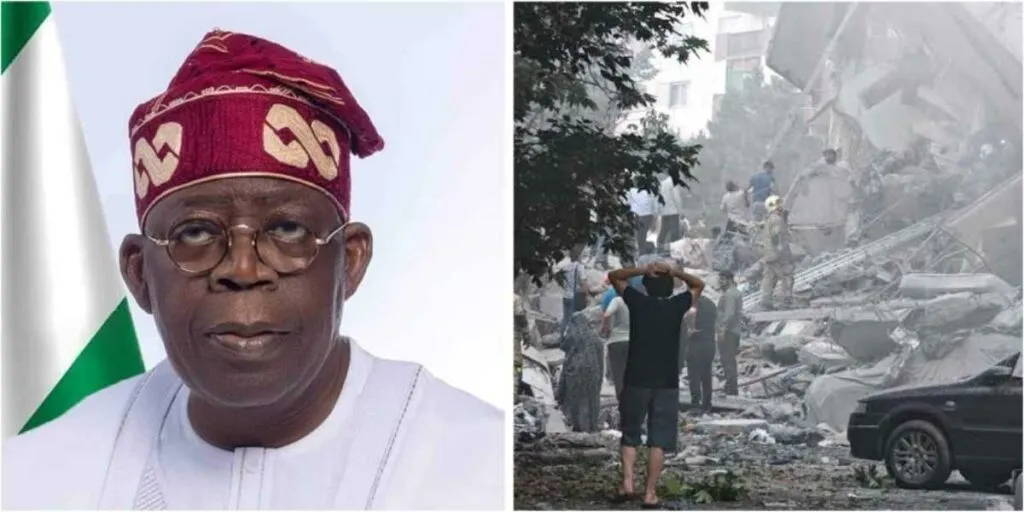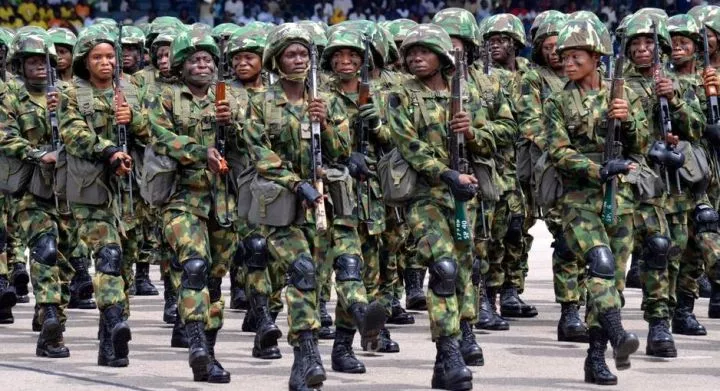
The 'japa' trend which started a few years ago is not showing any signs of slowing down, at least for now, as more Nigerians continue to throng the embassies of the UK, US, and Canada, among others for Visa.
Curiously, while there are different routes to migrate into these countries, which include jobs, business, and so on, most Nigerians have chosen the most convenient and easiest, but expensive route-study.
This has, however, become the albatross of Nigeria's foreign exchange as intending migrants cough out thousands in foreign currencies (mostly dollars) each year as school fees even before securing their visas.
This continues to build up the demands for forex amid dwindling forex inflow into the country.
According to data from the Central Bank of Nigeria (CBN), Nigerians spent over $609 million on foreign education in 2022.
According to data released by the British Government, the number of Nigerians granted study visas by the UK rose by 768.7% to 59,053 in 2022, the highest in four years, from 6,798 in 2019.
Going by the prevailing economic and social trends in the country, more Nigerians will be off to the UK and other foreign countries this year under the guise of studying abroad.
Suffice it to say that it is not just the foreign schools that are winning big from Nigerians' quest to move abroad; embassies of the countries are also raking in millions of dollars yearly as visa fees and payment for other consular services.
Indeed, the government of the UK, for instance, is set to increase the size of the pie as it just announced an increase in the cost of all categories of visas into the country with study visas getting the highest increment of 20%.
Exorbitant school fees
Over the years, schools in the UK, US, Canada, and other countries Nigerians flood, have been increasing their tuition steadily as demands continue to rise.
This has, however, not deterred many Nigerians from pursuing their dream of relocating through the study route.
In 2021/22, annual tuition fees for international undergraduate students in the UK started at £11,400 (US $14,130). This rose to as much as £32,081 (US $39,770).
In Canada, while the tuition fees for universities vary depending on the program and school chosen, an average university tuition costs around $36,100 per year for international undergraduate students, while graduate international students pay an average of $21,100, according to Statistics Canada in 2022.
To study in the United States, International students spend between $25,000 and $45,000 per year on tuition, aside from several other school and living expenses.
A recent report by SBM Intelligence also revealed that Nigerian students and their dependents contributed an estimated sum of £1.93 billion to the UK in 2021.
A breakdown of the total £1.93 billion shows that payments of school fees constituted about 35.36% (which is over a third) of the spending at £680.6 million.
Visa, other fees
Aside from school fees paid by Nigerian immigrants, the governments of the host countries are also gaining from visa, health, and other consular services fees, which are paid for in dollars by intending immigrants.
The SBMI report also revealed that Nigerian students paid a total of £151.3 million for national insurance, £54.4 and £41.8 million for National Health Service (NHS), and £41.7 million for visa fees to the UK government in 2021.
Not an easy venture
While many Nigerians are still in the process of applying for study visas at the time of filing this report, those who have scaled through the rigours of the process would admit that it is not an easy venture, especially, when it comes to the aspect of financing.
From getting forex to paying part of the school fees, Health Insurance, to Proof of Funds, they believe moving abroad via the study route is not for the faint-hearted.
For Adewale Segun (not real name) who moved to the UK last September via the study route, getting forex to cover all expenses for his travel was the first obstacle.
"After I was offered admission by the University of Southampton, I was given a week to pay half of the £18,520 school fees before I could get the Confirmation of Acceptance for Studies (CAS) for the visa, which amounted to about £9,300.
I filled the Form A in my bank and the time they gave me was 3 weeks, which would not meet up with the deadline. I had to spend extra millions of naira to source for pounds at the black market, which was around N800/£1 then," he said.
According to Adewale, the UK student visa fee that is required by the UKVI is usually about £363, and the IHS fee is about £705.
During the visa application process, this amount will be converted to dollars, which is currently $480 and the IHS fee is also about $930.
The IHS (Immigration Health Surcharge) is a fee that immigrants going to the UK must pay for a visa over 6 months. This includes student visas.
All international students are required to pay depending on the length of their course.
Another Nigerian student in Canada, Adeolu, was lucky to get his school fees paid through forex through the bank. However, he still had to patronize the black market to get dollars to pay other fees.
According to him, unlike the UK schools, applications for admission in Canadian schools are to be paid for and the schools charge from $100 and more.
"To apply for admission, I had to start looking for where to get dollars. It would have been easier when Nigerian banks were allowing international transactions on naira debit cards.
In the absence of that, I had to go and buy dollars at the black market and find a way to use them electronically to apply for admission.
Fortunately, I was able to get PTA from my bank to pay for the school fees after I got admission But it wasn't easy because I still had to buy more dollars from the black market before travelling to settle other bills," he said.
Forex scarcity bites harder in Nigeria
Like Adewale and Ola, many Nigerians intending to move abroad continue to source for forex through every available means to fund their visa and other payments, a development which exerts increasing stress on the exchange rate regime in the country, with banks lamenting about the scarcity of forex.
The pressure of more demand for forex has also seen the dollar rate jump to N800 at the CBN window albeit the parallel market, while the pound now exchanges at over N1,000 despite the government's floating the naira recently.
A Nigerian bank official who spoke with Nairametrics under the condition of anonymity disclosed that his bank continues to receive several requests for forex by Nigerians intending to study abroad through Form A.
He, however, noted that many of the requests cannot be met as the bank is also struggling to meet the forex needs of its corporate customers.
According to him, some of the Form A requests had even been sent before the new floating of the naira, yet the bank is yet to be able to attend to their requests.
Nigerians to pay more for UK Visa
Meanwhile, going to the UK either for a visit or study will now cost a few extra pounds as the UK Prime Minister, Rishi Sunak, announced that the surcharge paid for the state-funded national health service (NHS) by visa applicants from around the world will "increase significantly".
The British leader, who was under pressure to accept the recommendation of an independent review of pay for teachers, police, junior doctors, and other public sector workers, confirmed a hike between 15% (across various fees paid by migrants, including the cost of study visas, ILR, Settlement status) and others which is to increase by 20%.
"If we're going to prioritize paying public sector workers more, that money has to come from somewhere else because I'm not prepared to put up people's taxes and I don't think it would be responsible or right to borrow more because that would just make inflation worse," Sunak said.
"So, what we have done are two things to find this money. The first is, we are going to increase the charges that we have for migrants who are coming to this country when they apply for visas and indeed something called the immigration health surcharge (IHS), which is the levy that they pay to access the NHS.
All of those fees are going to go up and that will raise over £1 billion. So, across the board visa application fees are going to go up significantly and similarly for the HIS," Sunak said.
Why Nigerians Prefer to study abroad.
Aside from the 'japa' syndrome which is pushing many to embark on the expensive journey to study abroad, educational experts believe that a lot still has to do with the Nigerian education system.
An education consultant in Lagos, Mr Paul Ojeme, believes that if the education system in Nigeria is better, there would have been less demand for foreign education.
"The high demand for foreign education is a symptom of a deeper problem in Nigeria's education system. The government needs to invest more in education to make it more attractive for Nigerians to study at home.
"The rising number of Nigerians going out of the shores of the country for education is also hurting the Nigerian economy. The money that Nigerians spend on foreign education is not being reinvested in the country. The government needs to find ways to encourage Nigerians to study at home and to invest in the country's economy," he said
















Comments